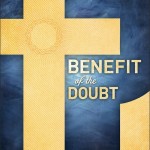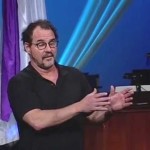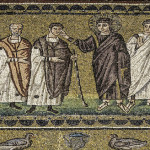We run our website the way we wished the whole internet worked: we provide high quality original content with no ads. We are funded solely by your direct support. Please consider supporting this project.
Drumming, Openness, Providence and Whatever
Hi folks,
Last Friday NDY held another dance/concert as a fund raiser for Providence Ministries. You can check out some photos here. We collected $2,000, praise God! A lot of Haitian kids will go to school with this money (and note, they couldn’t go without it). On top of raising a good chunk of change for a good cause, I felt that NDY as a band took our sound to new level.
I, in particular, had the single best drumming experience of my life! A friend lent me some specially designed ear phones that allowed me to hear the band, my track-clicker (metronome) and my bass drum MUCH better than I ever could before when using regular headphones. Another friend lent me a “shaker” that actually vibrates the drum seat with each bass drum hit. I know that probably sounds a bit weird, but you can’t imagine how it helps you keep the beat with your whole body. I have never before felt so present — so EMBODIED — in the music I was playing !
I vow I will never again drum without those ear phones or a “shaker”! This has opened up a whole new dimension of drumming for me — and folks, I’m going on 53! I feel like a kid getting his first drum set or something. I almost want to take a leave from preaching, teaching and writing and just do gigs for a year or so.
Not likely to happen.
So, I’ll go on happily doing my hobby while keeping my day job, which of course includes writing. Speaking of which, I recently had to take a break from my Jesus Versus Jehovah book (which, by the way, is cruising along at around 400 pages so far) in order to write an essay I was contracted to have finished by November 15th (ooops… I get kinda of lost when I’m in a manic writing frenzy). The essay is for a “Four Views” book on divine providence and will be published next year by Zondervan. I am of course arguing for the open model of divine providence.
Now, the single biggest objection to the idea that the future is partly open and known by God as such is that it is assumed that an omniscient God must by definition know the future exhaustively as a domain of eternally settled facts. This is why people keep on (mistakenly) thinking that open theologians such as myself are qualifying or denying God’s omniscience. In truth, we affirm God’s omniscience as strongly as anyone but simply broaden the definition of the future that God perfectly knows to include possibilities.
Anyway, here’s one of four arguments I offer in this essay against the view that an omniscient God must by definition know the future exhaustively as a domain of eternally settled facts.
Regardless of what we may believe, we all live as though the future was partly open and partly settled. For example, every time we deliberate between alternatives in the process of making a decision, we presuppose that it is up to us to resolve alternative possibilities into one definite course of action. There simply is no other way to deliberate.
Yet, if an omniscient God must by definition know the future exhaustively as a domain of eternally settled facts, then it must be logically impossible for God to create a world in which the future is partly open to possibilities and known by God as such. If so, then we who argue that our everyday experience of the world as deliberating decision-makers corresponds to the way reality ultimately is are not only mistaken in making this claim, we are actually asserting a logical contradiction. By definition, we are not only wrong but are asserting meaningless phrases (similar to “round triangle” and “married bachelor”). Similarly, those of us who argue that God’s experience of the future is analogous to our own in as much as he too chooses between genuine possibilities must also be committing a logical contradiction. If God by definition knows the future exhaustively as a domain of eternally settled facts, then by definition he can never choose between possibilities. So the concept of a God facing possibilities must be equivalent to “round triangle.”
Yet, it’s not at all clear how saying these things constitutes a logical contradiction, and it frankly seems very peculiar to assert that they are contradictory.
Along similar lines, if the future is by definition exhaustively settled from all eternity and thus known by God as such, our everyday experience of the world as partly open is itself logically contradictory, or at least rooted in a logical contradiction. But isn’t it rather bizarre to suppose that one of our most fundamental experiences as human beings — our ability to deliberate between options — is rooted in a contradiction? It would mean that we experience the world in a metaphysically impossible fashion. Why God would create (or nature would evolve) such an absurd situation is hard to fathom, but no harder than discovering where the alleged contradiction lies in our experience of deliberating between possibilities.
Finally, and in some respects most seriously, if it’s logically impossible for God to create a world in which the future is partly open, then those biblical authors who depict God as speaking and thinking about the future in terms of what might and might not come to pass (e.g. Ex. 13:17) or as changing his mind (e.g. Ex. 32:10-14) or as experiencing surprise and disappointment (Jer 3:7, 19; Isa 5:1-5) must also be asserting a logical contradiction, even if we interpret these depictions as “mere” anthropomorphisms. (Even anthropomorphisms must be logically coherent.) It is certainly difficult to see what it is about these depictions that’s logically contradictory, but not as difficult as it is to explain how passages presumably inspired by God could contain such impossible pictures of him in the first place.
If the above argument is valid, then the assumption that an omniscient God must by definition know the future as eternally and exhaustively settled is demonstrably false. God could create a world with an open future if he wanted to. The unique claim of Open Theism is that, not only is this kind of world possible, but scripture, experience and sound philosophy give us compelling reasons to think that, as a matter of fact, this is precisely the kind of world God created.
Chew on it.
Now I’ve got to get back to my embodied drumming. : – )
Greg
Category: General
Tags: Apologetics, Faith
Topics: Open Theism
Related Reading

Rachel Held Evans Interviews Greg on Benefit of the Doubt
We shared an interview that Frank Viola did with Greg yesterday, and we’re thrilled to share an interview that Rachel Held Evans posted today. Rachel is very familiar with the resistance and criticism that comes when dearly held beliefs are challenged. We feel like she is a kindred spirit in this regard. We hope you’ll…

Gospel “Contradictions” and Orality Studies
* This essay has been adopted from G. Boyd and Paul Eddy, Lord or Legend? (Baker, 2007). One of the standard tests historians put to ancient documents to assess their veracity is self-consistency. Generally speaking, fabricated accounts tend to include more inconsistencies than truthful accounts. Hence, the absence of inner contradictions contributes to a positive…

Sermons: Resurrection Principle
Is the resurrection of Jesus true? The entire Christian faith rests on if is or not. In this short sermon clip, Greg Boyd goes through a few historical proofs as to why this is true. It is important to remember Christ’s resurrection and the meaning, purpose and principle behind it. In the full sermon, Greg…

Have You Taken a Gospel Immunization Shot?
Why does being “Christian” in America make so little difference in so many people’s lives, when the kingdom movement revealed in the New Testament revolutionized people’s lives? This drastic difference is hardly surprising when you consider that the gospel that people are often given today is little more than a contract of acquittal that is…

Does God Still Heal?
In the ancient world Jesus was known first and foremost as an exorcist and a healer. These two activities are mentioned in every summary of Jesus’s ministry found in the Gospels. It’s common for Western Christians today to accept that infirmities (sickness, disease, injuries, disabilities and deformities) are part of God’s mysterious plan for their…

The Jesus Seminar and the Reliability of the Gospels
The Jesus Seminar The primary driving force behind the popular media’s present preoccupation with liberal views of Jesus has been the Jesus Seminar. This Seminar, first convened in 1985 by Robert Funk, is a gathering of 100 or so mostly liberal New Testament scholars who meet on a regular basis. They have determined, by a…
